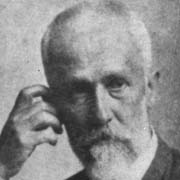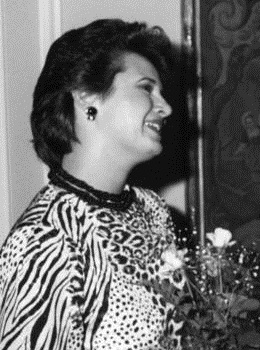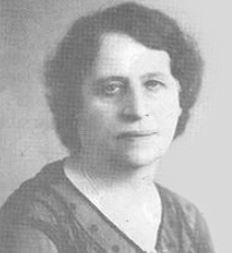
The politics of Costa Rica take place in a framework of a presidential, representative democratic republic, with a multi-party system. Executive power is exercised by the president and their cabinet, and the President of Costa Rica is both the head of state and head of government. Legislative power is vested in the Legislative Assembly. The president and 57 Legislative Assembly deputies are elected for four-year terms. The judiciary operates independent of the executive and the legislature but remains involved in the political process. Costa Rica is a republic with a strong system of constitutional checks and balances. Voting is compulsory in Costa Rica but it is not enforced.

The Legislative Assembly forms the unicameral legislative branch of the Costa Rican government. The national congress building is located in the capital city, San José, specifically in Carmen district of the San José canton.

Marta Lucía Ramírez Blanco is a Colombian lawyer and politician who served as Vice President of Colombia from 2018 to 2022. She also served as the Minister of Foreign Affairs of Colombia. In 2018, Ramírez became the first woman elected to serve as Vice President of Colombia, running on a ticket with Iván Duque Márquez. In 2021, after the resignation of her predecessor Claudia Blum, she was pronounced chancellor by the president Iván Duque Márquez.

Laura Chinchilla Miranda is a Costa Rican political scientist and politician who served as President of Costa Rica from 2010 to 2014. She was one of Óscar Arias Sánchez's two Vice-Presidents and his administration's Minister of Justice. She was the governing PLN candidate for president in the 2010 general election, where she won with 46.76% of the vote on 7 February. She was the eighth woman president of a Latin American country and the first woman to become President of Costa Rica. She was sworn in as President of Costa Rica on 8 May 2010.

Mauro Fernández Acuña was a Costa Rican politician and lawyer.

Margarita Penón Góngora (born October 11, 1948) is a Costa Rican politician. She was the First Lady of Costa Rica from 1986-1990, as well as an advocate and promoter of the landmark gender equality law passed in 1990. She ran for the presidential nomination in 1993 and served in the Legislative Assembly between 2002 and 2005. She currently represents Costa Rica on the board of directors of the Central American Bank for Economic Integration.

Marcela Guerrero Campos is the fourth deputy from San José for the 2014 to 2018 assembly. Guerrero is a member of the Citizens' Action Party and served as their Vice-President.

Ángela Acuña Braun, also known as Ángela Acuña de Chacón,, a Costa Rican lawyer, women's rights pioneer and ambassador, was the first woman to graduate as a lawyer in Central America. Orphaned at the age of 12, she was raised by her maternal aunt and uncle, attending elementary school and beginning high school in Costa Rica. She continued her education in France and England, gaining exposure to the ideas of women's rights. Returning to Costa Rica in 1912, she published articles in support of women's equality. She attended the boys' lyceum or high school where she passed the bachillerato, a prerequisite for entering law school. She embarked on law studies in 1913, leading to a bachelor's degree in 1916. As women were barred from entering the profession, Acuña immediately presented a reform to the civil code allowing this, which was adopted.

Corina Rodríguez López (1895-1982) was a Costa Rican educator, writer, feminist and occasional sculptor. She was the founder of the Casa del Niño and the Temperance League of Costa Rica, as well as a feminist and suffragette. She was twice exiled for her outspokenness on the treatment of women and children and her political views. She taught school in both Costa Rica and Panama and wrote articles for newspapers and magazines criticizing both national and international political policies. When she returned from exile in Panama, she worked as a housing advocate for poor families in the southern neighborhoods of San José. She was inducted into the Costa Rican Gallery of Women in 2007.

Ana Rosa Chacón (1889–1985) was a Costa Rican educator, health education practitioner, feminist and suffragette. In 1953, in the first election held after women became enfranchised in Costa Rica, Chacón became one of the first three women elected to serve in public office.

Esther de Mézerville Ossaye was a Guatemalan teacher, feminist, suffragette and activist who worked to help women obtain the vote in Costa Rica.
Lidia Fernández Jiménez was a Costa Rican suffragist and feminist active between 1920 and 1940 in the struggle for women's right to vote.

The Constitution of Costa Rica is the supreme law of Costa Rica. At the end of the 1948 Costa Rican Civil War, José Figueres Ferrer oversaw the Costa Rican Constitutional Assembly, which drafted the document. It was approved on 1949 November 7. Several older constitutions had been in effect starting from 1812, with the most recent former constitution ratified in 1871. The Costa Rican Constitution is remarkable in that in its Article 12 abolished the Costa Rican military, making it the second nation after Japan to do so by law. Another unusual clause is an amendment asserting the right to live in a healthy natural environment.

Sonia Picado Sotela,, is a Costa Rican jurist, politician and university professor with experience in the field of human rights.

María Teresa Obregón Zamora (1888-1956) was a teacher, suffragist and politician in Costa Rica. She was part of the group that formed the Asociación Nacional de Educadores (ANDE) and fought for women's enfranchisement. After winning the vote, she helped found the National Liberation Party of Costa Rica and was one of the first three women elected as a Deputy of the Legislative Assembly of Costa Rica. In 2002, Obregón was honored as one of the inaugural group of women inducted into La Galería de las Mujeres de Costa Rica.

Carlos Andrés Alvarado Quesada is a Costa Rican politician, writer, journalist, and political scientist who served as the 48th president of Costa Rica from 8 May 2018 to 8 May 2022. A member of the Citizens' Action Party (PAC), Alvarado previously served as Minister of Labor and Social Security during the presidency of Luis Guillermo Solís.

The history of the Costa Rican legislature is long and starts from even before its formal independence from the Spanish Empire. Costa Rica is one of the world's oldest democracies, thus, its parliamentary history dates back several centuries.

The Founding Junta of the Second Republic was a de facto government which existed in the Republic of Costa Rica from May 8, 1948, to November 8, 1949, with the overthrow of the constitutional president Teodoro Picado Michalski, by a group of revolutionaries headed by José Figueres Ferrer.
Alejandra Mora Mora is a Costa Rican jurist, lawyer, professor, and politician. She has been a human rights activist, especially in the area of women's rights. She served as her country's Minister of Women's Affairs from 2014 to 2018, was president of the National Institute for Woman (INAMU), and director of the women's section of the Ombudsman's Office of Costa Rica.

Ana Patricia Mora Castellanos is a Costa Rican sociologist, university professor, and politician.
















